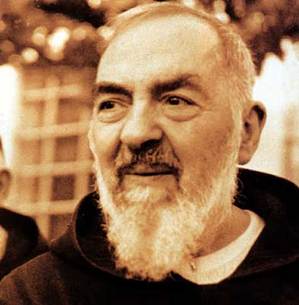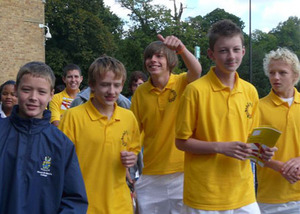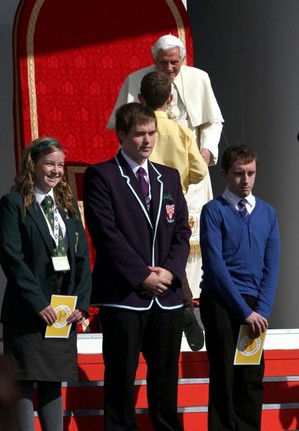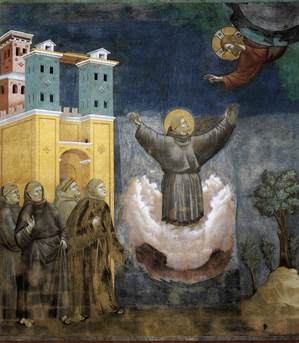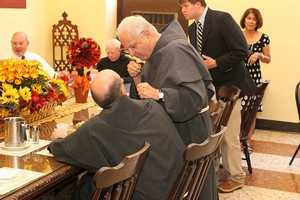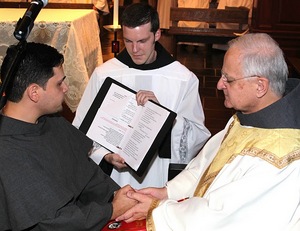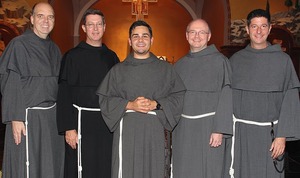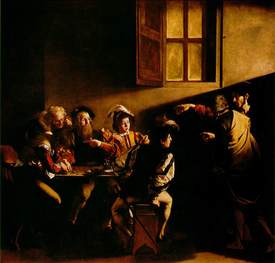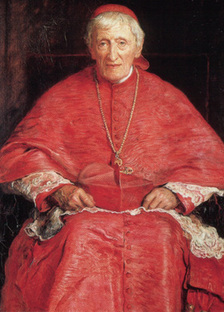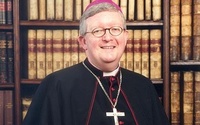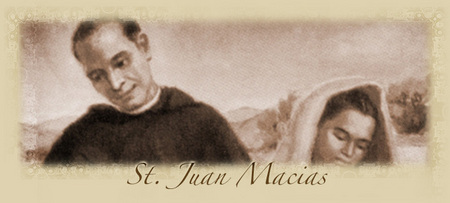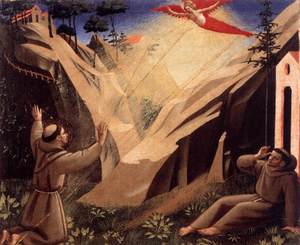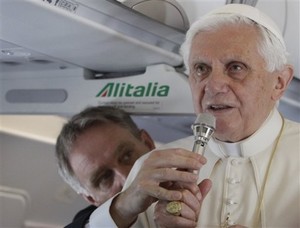40 Days for Life –get involved NOW!
 The pro-life campaign 40 Days for Life begins today, Get involved to save an unborn life.
The pro-life campaign 40 Days for Life begins today, Get involved to save an unborn life.
I invite you to become saints, Pope Benedict said to UK students
I couldn’t follow the Pope’s UK trip after very early Friday morning so I find myself reviewing the magnificent papal event. If you’ve not read Benedict’s UK addresses, I highly recommend that you do so. What follows are some of the stunning thoughts of the Holy Father from an education gathering at St Mary’s University College. I have to say, when I was in the Catholic school system as a student and as a teacher, the idea of becoming a saint, or at least using the word ‘saint’ never crossed my mind. Sad to say. Sure we spoke about virtue, grace, sin, sacrament, love, God but we may have talked around the idea of becoming a saint which is not a good thing. BUT becoming a saint has a new currency in my life. The tenderness and clarity of the Pope’s address to the youth is nothing but beautiful. The are resonances in the talk of Sts Benedict, Francis, Dominic and Ignatius of Loyola, and Fr Giussani. Here are some excerpts, emphasis mine.
It is not often
that a Pope, or indeed anyone else has the opportunity to speak to the students
of all the Catholic schools of England, Wales and Scotland at the same time.
And since I have the chance now, there is something I very much want to say to
you. I hope that among those of you listening to me today there are some of the
future saints of the twenty-first century. What God wants most of all for each
one of you is that you should become holy. He loves you much more than you
could ever begin to imagine, and he wants the very best for you. And by far the
best thing for you is to grow in holiness.
Perhaps some of you have never
thought about this before. Perhaps some of you think being a saint is not for
you. Let me explain what I mean. When we are young, we can usually think of
people that we look up to, people we admire, people we want to be like. It
could be someone we meet in our daily lives that we hold in great esteem. Or it
could be someone famous. We live in a celebrity culture, and young people are
often encouraged to model themselves on figures from the world of sport or
entertainment. My question for you is this: what are the qualities you see in
others that you would most like to have yourselves? What kind of person would
you really like to be?
When I invite you to become saints, I am asking you not
to be content with second best. I am asking you not to pursue one limited goal
and ignore all the others. Having money makes it possible to be generous and to
do good in the world, but on its own, it is not enough to make us happy. Being
highly skilled in some activity or profession is good, but it will not satisfy
us unless we aim for something greater still. It might make us famous, but it
will not make us happy.
Happiness is something we all want but one of the great
tragedies in this world is that so many people never find it, because they look
for it in the wrong places. The key to it is very simple – true happiness is to
be found in God. We need to have the courage to place our deepest hopes in God
alone, not in money, in a career, in worldly success, or in our relationships
with others, but in God. Only he can satisfy the deepest needs of our hearts.
Not
only does God love us with a depth and an intensity that we can scarcely begin
to comprehend, but he invites us to respond to that love. You all know what it is like when you meet someone interesting and attractive,
and you want to be that person’s friend. You always hope they will find you
interesting and attractive, and want to be your friend. God wants your
friendship. And once you enter into friendship with God, everything in your
life begins to change. As you come to know him better, you find you want to
reflect something of his infinite goodness in your own life. You are attracted
to the practice of virtue. You begin to see greed and selfishness and all the
other sins for what they really are, destructive and dangerous tendencies that
cause deep suffering and do great damage, and you want to avoid falling into
that trap yourselves. You begin to feel compassion for people in difficulties
and you are eager to do something to help them. You want to come to the aid of
the poor and the hungry, you want to comfort the sorrowful, you want to be kind
and generous. And once these things begin to matter to you, you are well on the
way to becoming saints.
In your Catholic schools, there is always a bigger
picture over and above the individual subjects you study, the different skills
you learn. All the work you do is placed in the context of growing in
friendship with God, and all that flows from that friendship. So you learn not
just to be good students, but good citizens, good people. … Always remember
that every subject you study is part of a bigger picture. Never allow
yourselves to become narrow. The world needs good scientists, but a scientific
outlook becomes dangerously narrow if it ignores the religious or ethical
dimension of life, just as religion becomes narrow if it rejects the legitimate
contribution of science to our understanding of the world. We need good
historians and philosophers and economists, but if the account they give of
human life within their particular field is too narrowly focused, they can lead
us seriously astray.
A good school provides a rounded education for the whole
person. And a good Catholic school, over and above this, should help all its
students to become saints. I know that there are many non-Catholics studying in
the Catholic schools in Great Britain, and I wish to include all of you in my
words today. I pray that you too will feel encouraged to practise virtue and to
grow in knowledge and friendship with God alongside your Catholic classmates.
You are a reminder to them of the bigger picture that exists outside the
school, and indeed, it is only right that respect and friendship for members of
other religious traditions should be among the virtues learned in a Catholic
school. I hope too that you will want to share with everyone you meet the
values and insights you have learned through the Christian education you have
received.
Saint Jonah, prophet
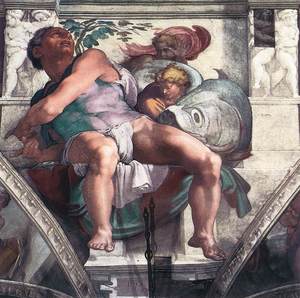 You did pass three days and night within the sea-monster’s entrails, showing forth the Lord’s descent into the belly of Hades. For when He had freely suffered His saving Passion, He arose out of the sepulcher on the the third day. Hence, we honor you, O Prophet, who wads deemed worthy to be a figure of Christ. (Kontakion, 3rd tone)
You did pass three days and night within the sea-monster’s entrails, showing forth the Lord’s descent into the belly of Hades. For when He had freely suffered His saving Passion, He arose out of the sepulcher on the the third day. Hence, we honor you, O Prophet, who wads deemed worthy to be a figure of Christ. (Kontakion, 3rd tone)The Roman Martyrology notes today, in addition to the
evangelist Saint Matthew, as the feast day of the Old Testament prophet Jonah,
as a saint. Jonah lived in the eighth century BC and succeeded the Prophet
Elisha. His prophecies included judgments on the people of Israel and the downfall of Jerusalem,
the suffering of the Savior, and the
final destruction of the world; his prophetic utterances therefore focused on penance and repentance of all believers which is a central theme in the preaching of Jesus, which He the disciples to. The Fathers of the Church
have taught that Prophet Jonah is a type of Christ:
generation asks for a sign, but no sign will be given to it except the sign of
the prophet Jonah. For just as Jonah was in the belly of the huge fish for
three days and three nights, so the Son of Man will be in the heart of the
earth for three days and three nights. The people of Nineveh will stand up at
the judgment with this generation and condemn it, because they repented when
Jonah preached to them – and now, something greater than Jonah is here!
(Matthew 12:39-41)
Conventual Franciscan professes vows: Gabriel Scasino hopes to attain perfect charity
Over the weekend I had the pleasure of attending a friend’s profession of first vows as a Conventual Franciscan friar. Friar Gabriel Mary Scasino is a member of the Immaculate Conception Province of Conventuals. The vow ceremony was held at the National Shrine of St Anthony of Padua, Ellicott City, MD, on the Solemnity of St Joseph of Cupertino (the day was a solemnity because the friary is dedicated to the honor of Cupertino).
- “dedicate themselves directly and entirely to God in a special manner;
- are conformed more exactly to the type of life Christ the Lord chose for Himself and are united in a special way to the Church and her saving mission;
- stimulate the fervor of their charity through a fuller expression of their baptismal consecration, progress in the life of pilgrims and penitents, and voluntarily deny themselves goods and otherwise highly esteemed.”
Saint Matthew: He did what he heard
Matthew collected tolls and customs,
Shunned for his work and his dishonesty, Till one day Jesus stood before him, Looked in his face, and told him, “Follow Me!” All that he’d spent his life acquiring, All that he’d scraped and saved and stopred away, Now was no longer worth desiring, Compared with Jesus, Truth and Life and way.
Some of the righteous were offended
That grace should come to such a sinful man. In hopes their hearts might be amended, Jesus explained so they could understand: “Just as the doctor treats the ailing, And passes by the healthy and the whole, So to the stumbling and the failing
I come to offer healing to the soul.”
Lord God, who chooses the unworthy,
Who once called out to Matthew, “Follow Me!”
Transform our weakness into glory
And our conceit into humility.
Teach us to know–and to believe it–
That Your unchanging love cannot be earned,
But as Your children we receive it
As did the prodigal when he returned.
Come, all in need of hope or healing,
Come, sick and weak, despondent or ashamed,
Come, bitter, faithless and unfeeling,
Turn your steps home again and be reclaimed!
And you, self-righteous and unbending,
Cast off your pride and your hypocrisy.
Come, leave your life for life unending,
As Matthew did when he heard, “Follow Me!”
(Text by Gail Gillispie)
Rite of Beatification of John Henry Newman
Many Catholics and Christians of good will are genuinely interested in the formula the Church uses to beatify someone, thus identifying a person a “blessed.” Notice who does/says what in the formula. The following is the rite (with a brief biography) used today by Pope Benedict XVI:
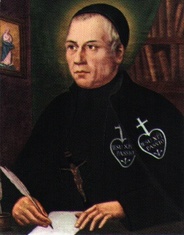 John Henry Newman was born in London in 1801. He was for over twenty years an Anglican clergyman and Fellow of Oriel College, Oxford. As a preacher, theologian and leader of the Oxford Movement, he was a prominent figure in the Church of England. His studies of the early Church drew him progressively towards full communion with the Catholic Church. With his companions he withdrew to a life of study and prayer at Littlemore outside Oxford where in 1845 Blessed Dominic Barberi, a Passionist priest, received him into the Catholic Church.
John Henry Newman was born in London in 1801. He was for over twenty years an Anglican clergyman and Fellow of Oriel College, Oxford. As a preacher, theologian and leader of the Oxford Movement, he was a prominent figure in the Church of England. His studies of the early Church drew him progressively towards full communion with the Catholic Church. With his companions he withdrew to a life of study and prayer at Littlemore outside Oxford where in 1845 Blessed Dominic Barberi, a Passionist priest, received him into the Catholic Church.
influential writer on a variety of subjects, including the development of Christian
doctrine, faith and reason, the true nature of conscience, and university education. In 1879 he was created Cardinal by Pope Leo XIII. Praised for his humility, his life of prayer, his unstinting care of souls and contributions to the intellectual life of the Church, he died in the Birmingham Oratory which he had founded on 11 August 1890.
Saint Juan Macias
Come, you whom my Father has blessed, says the Lord; I was ill and you comforted me. I tell you, anything you did for one of these you did for me.
Saint Francis received the stigmata
The Mass prayer for today’s liturgical memorial may be found here.
The Church does not work to be attractive…but is of service to the other…always, pope says
On the plane to Scotland this morning the Pope held the typical Q&A session with reporters. THE more important of the Q&A, in my opinion, is noted below. The questions are vetted prior to the asking.
Question:
The UK,
like many other Western countries – there is an issue that you have already
touched on in the first answer -it is considered a secular country. There is a
strong atheist movement, even for cultural reasons. However, there are also
signs that religious faith, particularly in Jesus Christ, is still alive on a
personal level. What can this mean for Catholics and Anglicans? Can anything be
done to make the Church as an institution, more credible and attractive to
everyone?
Answer:
I would say that a Church that seeks to be particularly
attractive is already on the wrong path, because the Church does not work for
her own ends, she does not work to increase numbers and thus power. The Church
is at the service of another: she serves, not for herself, not to be a strong
body, rather she serves to make the proclamation of Jesus Christ accessible,
the great truths and great forces of love, reconciling love that appeared in
this figure and that always comes from the presence of Jesus Christ. In this
regard, the Church does not seek to be attractive in and of herself, but must
be transparent for Jesus Christ and to the extent that she is not out for
herself, as a strong and powerful body in the world, that wants power, but is
simply the voice of another, she becomes truly transparent for the great figure
of Christ and the great truth that he has brought to humanity. The power of
love, in this moment one listens, one accepts. The Church should not consider
herself, but help to consider the other and she herself must see and speak of
the other. In this sense, I think, both Anglicans and Catholics have the same
simple task, the same direction to take. If both Anglicans and Catholics see
that the other is not out for themselves but are tools of Christ, children of
the Bridegroom, as Saint John says, if both carry out the priorities of Christ
and not their own, they will come together, because at that time the priority
of Christ unites them and they are no longer competitors seeking the greatest
numbers, but are united in our commitment to the truth of Christ who comes into
this world and so they find each other in a genuine and fruitful ecumenism.
